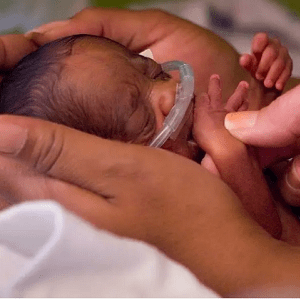A new study reveals significant disparities in preterm birth rates across racial, ethnic, and nativity groups in the United States, with U.S.-born women experiencing higher rates compared to their non-U.S.-born counterparts. The research, published in JAMA Network Open, analyzed data from over 34 million singleton live births between 2009 and 2018.
The study found that among U.S.-born women, Black women had the highest overall preterm birth rate at 12.1%, while white women had the lowest at 7.2%. For non-U.S.-born women, Native Hawaiian or other Pacific Islander women had the highest rate at 9.8%, with white women again having the lowest at 5.5%.
Alejandra Barreto, lead researcher from Children’s Hospital of Philadelphia, noted, “The immigrant paradox is an epidemiologic observation suggesting that non-U.S.-born racial and ethnic groups have better health outcomes, particularly birth outcomes, than their in-country-born counterparts despite experiencing socioeconomic and health care access-related barriers.”
All racially and ethnically minoritized groups showed increased risks for extremely preterm birth compared to U.S.-born white women. U.S.-born Black women had nearly 50% higher rates of extremely preterm birth than non-U.S.-born Black women.
The researchers suggest that future studies should explore how nativity, ethnicity, and race together may represent a way to measure the implications of intersectional structural discrimination associated with racism, colorism, and xenophobia for birth outcomes. They emphasized that this detailed epidemiologic data could aid in developing targeted interventions and policies to improve perinatal outcomes in specific populations.
See “Preterm birth rates vary across nativity, ethnicity and racial identities” (March 25, 2024)



